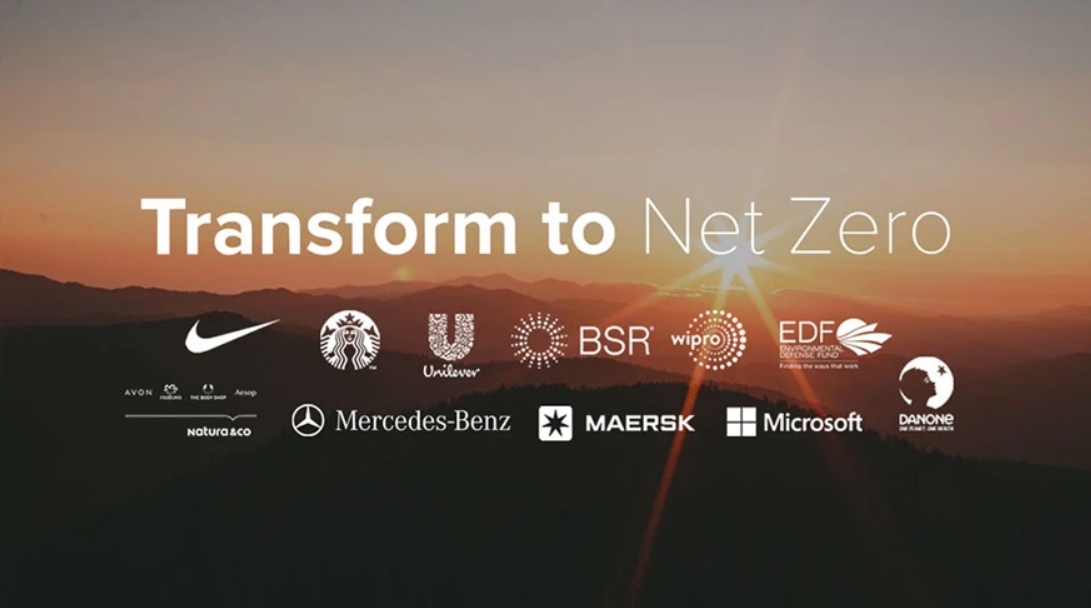The heads of nine companies Tuesday announced the establishment of a new initiative to accelerate the transition to a net zero global economy. The initiative, known as Transform to Net Zero, intends to develop and deliver research, guidance, and implementable roadmaps to enable all businesses to achieve net zero emissions.

The Initiative will be led by founding members including A.P. Moller - Maersk, Danone, Mercedes-Benz AG, Microsoft Corp., Natura &Co, NIKE, Inc., Starbucks, Unilever, and Wipro, as well as Environmental Defense Fund (EDF). The Initiative is supported by BSR, which is serving as the Secretariat for the Initiative.
Transform to Net Zero will focus on enabling the business transformation needed to achieve net zero emissions no later than 2050, in addition to driving broader change with a focus on policy, innovation, and finance. The outputs of the initiative will be widely available to all, though additional companies may join. The Initiative intends to complete the outputs of this work by 2025.
The work will be led by the following principles:
- Focused on transformation: Delivering on our individual commitments and translating into action, which will include corporate strategy, governance and accountability, finance and operations, risk management, procurement, innovation and R&D, marketing, and public affairs.
- Led by science and best practice data and methods: Committed to standardized approaches to achieve what the best available science requires for a 1.5°C world; committed to improving the quality and availability of research, data, and tools for all; committed to the highest return for the climate on investment.
- Leveraging existing efforts: Committed to open collaboration with existing net zero initiatives (sign-on, advocacy, sectorial, methodology efforts) to leverage existing work and advance business transformation to net zero.
- Strong governance and oversight: At the highest levels of the company, governance and oversight structures will work to achieve net zero, including through developing innovative products, services, and business models.
- Robust reduction and removal across the extended enterprise: Net zero requires emissions reductions across the entire value chain, including impact of products and services and supply chain. Net zero requires us to achieve greenhouse gas (GHG) emissions reductions aligned with the latest science and increase our capacity for GHG removals in the near term to be the path to get companies—and the world—to net zero no later than 2050 to ensure a stable climate, and will mean a mix of climate-positive actions should be pursued.
- Investment in innovation: Substantial commitment and willingness to invest in and accelerate innovation to achieve net zero transformation, including partnering with others.
- Policy engagement: Advancing public policy that enables and accelerates progress towards net zero, and engagement with bodies such as trade associations to achieve this objective.
- Transparency and accountability: Public reporting and disclosure on progress towards net zero transformation to key stakeholders, including investors, customers, consumers, and where required―regulators; sharing information with all stakeholders on good practice to net zero transformation.
- Just and sustainable transition: We know that marginalised groups and low-income communities bear the greatest impacts of climate change. Therefore, we will help enable conditions needed to achieve effective, just, and sustainable climate solutions for people of all gender, race, or skills.
Source: Maersk